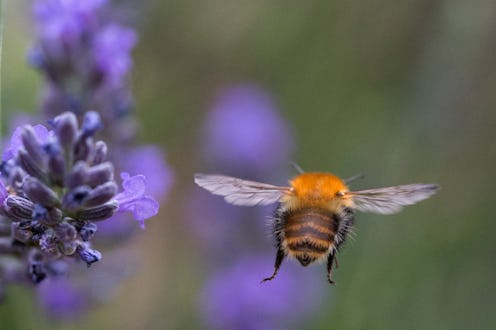Bees might be one of the most glaring examples of underrated cretaures. However, as they become more and more scarce, people are finally taking note. Specifically insecticides are killing honeybees off by the hundreds and it's starting to take a toll on farming practices. When bees aren't pollinating crops, what does? Answer: Nothing. In an effort to raise awareness for this hardworking little insects, a photographer followed a bee's first 21 days in time lapse and then compiled the footage in a moving video.
National Geographic vet photographer Anand Varma took on the project to document the bee's growth process. The shots collected are so sharp and illuminating, it helps clarify some of the mystery of bees' secret lives and their complex development. Although it looks like Varma has a lot of experience getting up close and personal with insects and macrophotography as a whole, it still seems a little conventionally brave to chase such an assignment. Even though only about 53 people die in the U.S. each year from bee stings (largely due to an intense allergy to the sting), the fear attached to the tiny animal is very real. Apiphobia describes fear of bees and is a fairly common phobia, even though they hardly ever sting unless provoked.
Even though it's not like apiphobia is the leading cause in the dramatic decline in honeybee population, I'm sure it couldn't help end that.
Besides the whole hugely helping pollination business, let's not forget bees are responsible for producing honey. That gooey sweet stuff has a myriad of helpful and delicious uses. Among them:
Raw honey is good for your skin
Properties in raw honey regulate pH levels in skin and keep things neutral. Keeping everything chill in that department actually has an anti-aging effect. Not shabby!
It might improve your memory
A 2011 study suggested a spoonful of honey can boost postmenopausal women's memory. And seriously, there's no harm in starting that tasty habit before you get there.
It can help slow drunkenness
Apparently, a little honey can help diminish the effects of alcohol. The sodium and potassium in there have a hand in replenishing nutrients lost while boozing, scientists say.
Images: Getty Images; YouTube; Giphy(3)
